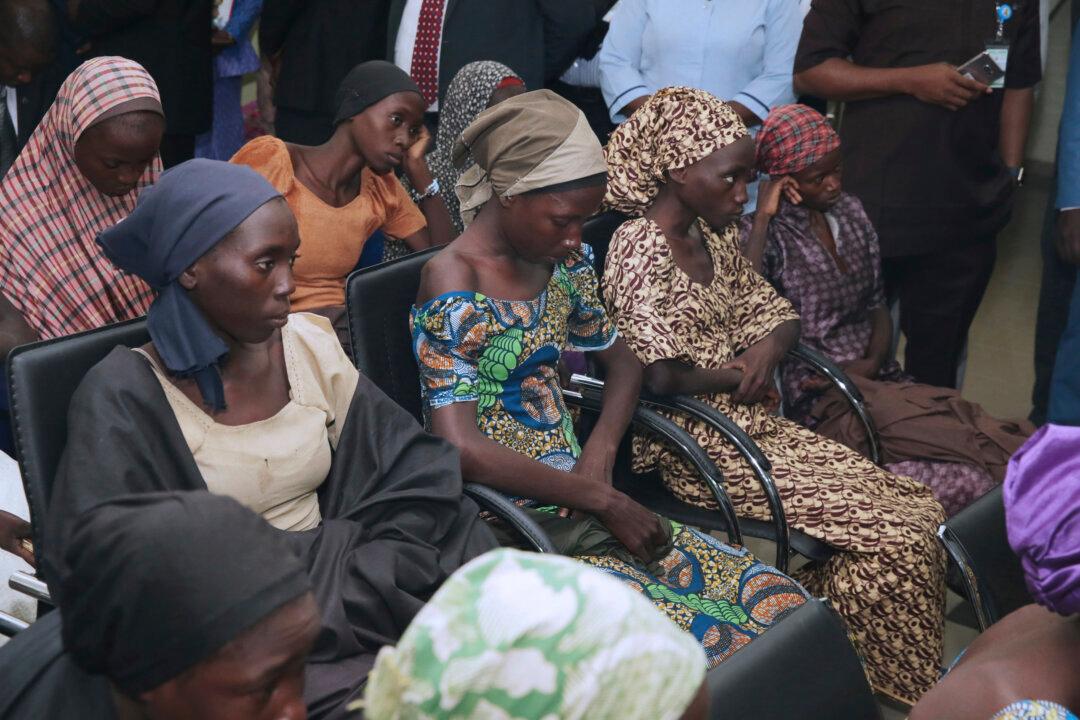JOHANNESBURG—Conflicting reports emerged Friday about whether the first negotiated release of some Chibok schoolgirls kidnapped by Boko Haram in Nigeria in 2014 involved a ransom payment, a prisoner swap for Islamic extremist commanders, or both.
A Nigerian hostage negotiator who was not involved in Thursday’s release told The Associated Press a “handsome ransom” in the millions of dollars was paid by Switzerland’s government on behalf of Nigerian authorities. He said the Swiss would recoup the money from some $321 million it had said it would repatriate to Nigeria this year from frozen funds looted under former military dictator Sani Abacha.
Swiss officials did not immediately respond to requests for comment after confirming Thursday that they had played a neutral, humanitarian role in the operation. The International Committee of the Red Cross confirmed that it had received 21 Chibok girls from Boko Haram and handed them over to Nigerian authorities.
Nigerian authorities have said negotiations continue for the release of the remaining 197 missing girls, though at least half a dozen are reported to have died of illnesses.
Two military officers told the AP the 21 girls were swapped for four detained Boko Haram leaders. The hostage negotiator and officers spoke on condition of anonymity because they were not authorized to speak publicly.
Nigerian officials deny any swap. Vice President Yemi Osinbajo said “there was no exchange of any kind ... No such thing took place.” He did not mention a ransom.
Some parents of the freed girls on Friday were making their way to Abuja, the capital, where the girls were flown Thursday, to be reunited with their daughters. At least 23 parents of the kidnapped girls have died since their abduction, some from stress-related illnesses and others in Boko Haram attacks.
More than 20,000 people have died and 2.6 million have been driven from their homes in Boko Haram’s seven-year insurgency aimed at creating an Islamic state across the West African oil producer, whose 170 million people are divided almost equally between Muslims in the north and Christians in the south.
The first negotiated release of Chibok schoolgirls comes after three failed attempts over several months broke down as extremist leader Abubakar Shekau kept changing his demands, according to Information Minister Lai Mohammed. Negotiations last year failed when Boko Haram demanded a ransom of $5.2 billion, according to a recently published authorized biography of Nigerian President Muhammadu Buhari by American historian John Paden.
Daily Trust, the most widely read newspaper in northern Nigeria, has reported a ransom was paid for the 21 Chibok girls because none of the detained Boko Haram commanders wanted to be released, fearing for their lives amid a leadership struggle in the extremist group.
The girls are from a Christian enclave in the predominantly Muslim northeast. Many of their parents are involved in translating the Bible into local languages and belong to the Nigerian branch of the Elgin, Illinois-based Church of the Brethren.





